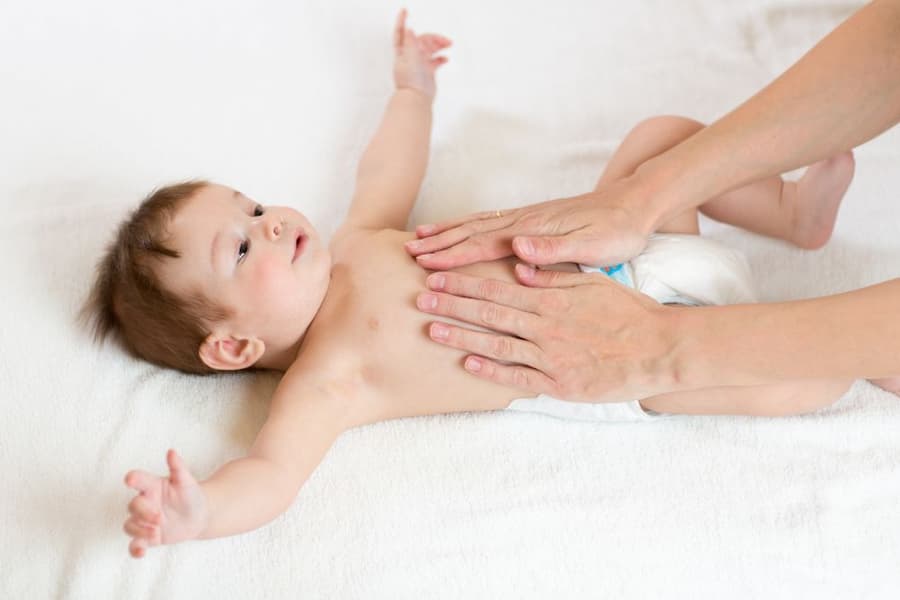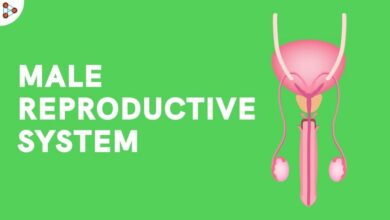Tiny bubbles are formed in a baby’s stomach or intestines when they gas, producing pressure and stomach ache. Many gassy newborns are concerned with their gas, while some go restless and refuse to sleep until they pass their gas. Others will cry for hours.
A few easy home remedies will generally soothe a baby down and reduce gas problems. In most circumstances, newborn gas isn’t a cause for concern. Discussion with a pediatrician might help the parents or caregiver figure out what’s causing the baby’s gas.
Why Is My Baby So Gassy?
Every human in the world emits and creates gas. The small intestine absorbs the usable elements as food passes through the gastrointestinal tract. Bacteria in the large intestine break down the leftovers, releasing hydrogen and carbon dioxide and creating gas bubbles in the process. Burping allows some gas to escape from the stomach early on, while the rest travels from the colon to the rectum, mostly discharged through bowel movements or farts.
If the gas does not escape freely, it can build up in the digestive tract, causing bloating and discomfort. This is especially common among infants. As the newborn digestive system is still developing, they produce a lot of gas, which is normal. Infants also take in a lot of air while eating and screaming, resulting in greater gas production.

How Does a Baby’s Diet Affect Gas?
Breast milk is naturally normal and the healthiest meal for babies. If a baby experiences gas, there is no need to stop breastfeeding. Keep a food diary to see whether particular foods cause your infant to get gas.
Infant formula may also be a culprit. Air bubbles in a baby’s food can be caused by mixing infant formula, increasing the risk of gas. Instead, use a pre-mixed liquid formula or wait a few minutes before feeding the baby to enable the formula to settle.
Some babies may be allergic to substances in the formula, such as soy or lactose. A small study found that giving newborns a low-lactose formula that is easy to digest may ease gas and colic. Before switching formulas, consult your baby’s pediatrician.
Keep a food diary after your baby starts eating. This can help in the detection of food sensitivities that cause gas.
Causes
Almost every baby has gas. When air enters the digestive tract, such as when a newborn sucks on a bottle and swallows air, gas is produced. Gas does not always indicate that something is wrong.
A newborn may become gassy for a variety of reasons, including:
Swallowing Air
If a baby latches on to the breast incorrectly or nurses or drink from a bottle in certain positions, they can inhale air. They can also swallow air by babbling a lot.
Excessive Crying
When babies cry, they tend to swallow air. It can be difficult to tell whether gas is the cause of weeping or crying is the cause of gas. In either case, it’s important to respond quickly to a crying baby’s requirements and comfort them as effectively as possible.
Minor Digestive Problems
When a baby is constipated, it may have gas. Gas can sometimes indicate a gastrointestinal problem, such as reflux. Consult a pediatrician, especially if the gas is frequent or strong.
An Immature Digestive Tract
Babies’ bodies may produce more gas than adults, as their body is still learning to digest food.
Gastrointestinal Virus
Sometimes viruses are caused by stomach disorders such as gas, vomiting, and diarrhea.
New Foods
New meals may produce gas in older infants who eat solids. Frequent gas may be one of the indicators of food sensitivity in some infants.
Symptoms
The following are the most common signs of gas in a baby:
· Crying when passing gas or immediately after passing gas, especially if the crying occurs when the baby is not hungry or tired.
· The back arching.
· Legs are raised.
· The stomach appears to be swollen.
· Belching or passing gas.
Diagnosis
Gas is not a medical disease. It is a temporary but sometimes uncomfortable symptom for most newborns. Minor gas does not need a visit to the doctor, but it is important to discuss all symptoms with the baby’s next check-up. A pediatrician may offer testing to establish the cause of the gas is severe or there are other symptoms.
Doctors can use the following approaches to figure out what’s causing the gas and other symptoms:
· Examining the infant for symptoms of illness or other issues.
· Viewing the baby’s stool, generally by requesting a dirty diaper.
If a serious problem is recognized, the doctor may conduct imaging studies of the baby’s digestive tract to determine more serious conditions.
Home Remedies
Simple home remedies might help a baby relax and move gas bubbles out of its body more quickly. It may be beneficial to place the baby’s head above their stomach.
To relieve gas in a newborn, use the following methods:
Moving Their Legs in a Circle
Lift the baby’s legs with their knees bent and lay them flat on their back. To help the baby in releasing trapped gas, move the legs in a bicycling motion.
Raising Their Head
Raise the baby’s head above the level of their stomach. Burping should be done while holding them upright.
Going for a Car Ride
Take the infant for a car ride if they like it. The moderate rocking may help the infant relax and feel better.
Swaddling
Swaddling newborns and small children can be helpful. However, this is not something that all babies enjoy.
Tummy Time
Let the infant have some tummy time while they are awake and supervised. Placing them on their tummies and allowing them to move around is known as tummy time. This helps them build their upper body muscles while also encouraging them to raise their heads. This can help in releasing trapped gas while also promoting healthy muscle growth.
Giving Gas Drops
If parents or caregivers follow the dosing directions on the bottle, Simethicone gas drops can benefit certain babies. It can be given up to 12 times per day. Most studies suggest that these drops are no better than a placebo at decreasing weeping and gas.
Probiotic Supplements
A probiotic supplement could help babies with severe colic. If home remedies fail and a baby’s gas is very bad, consult a pediatrician regarding the use of a probiotic.
Distracting Them
When older infants are bored, they may cry more from pain. Singing, dancing, toys, and interactive play can help the infant forget about the gas pain.
Prevention
Many breastfeeding mothers are concerned that their diet is the culprit. The following are some measures that may help in the prevention of gas:
Slowing Down Feeding
Slowing the rate at which formula-fed newborns eat is a good idea. Some babies drink from bottles too quickly, resulting in air being swallowed. Use a nipple with a slow flow rate. You can find a variety of brands online.
Trying Different Bottles
Different-shaped bottles, such as curved bottles, can help some newborns have less gas. Regardless of the bottle type, ensure that the bottom of the bottle is filled with milk rather than air.
Improving Latch
When a baby’s latch is weak, they may swallow too much air. Consult a lactation consultant if breastfeeding is uncomfortable, the infant appears frustrated, or the baby often unlatches from the breast.
Other Reasons Your Baby Could be crying.
Crying is a baby’s only way of communication while they are very young. Gas or colic may be the cause of your child’s tears; there may be other reasons why they are disturbed. These include:
Early Teething
Along with fussiness, teething is connected with increased drooling, increased biting or gumming, swelling of the gums, and occasionally even ear-rubbing.
Pain or Illness
Intense crying, especially in newborns, might be a sign that your baby is in discomfort due to illness or injury. Examine your baby for bruises and other injuries. Make an appointment with your baby’s pediatrician to have them checked out just in case.
Tiredness
Babies can quickly become overtired and, ironically. Make an effort to establish a consistent sleep routine, such as providing a dark and comfortable environment.
When to Speak With a Doctor?
Most baby gas cases are fairly harmless; there are times when expert treatment is necessary.
Contact your pediatrician if your baby is crying regularly, has extended crying sessions three or more times per day, or has only recently started crying after turning one month old.
If your child isn’t eating, peeing, or having regular bowel motions, you should consult a doctor or seek medical care.




